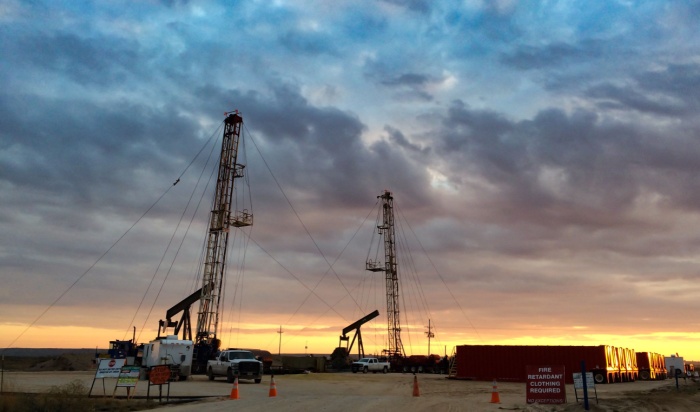Why Are Oilfield Traffic Accidents So Dangerous?
Living and working in Texas, you know the oil industry is a major economic driver. But what you might not know is that traffic accidents in oilfields are reported to be some of the most dangerous on the road. At Falcon Law Group, we understand the unique risks faced by drivers in these areas and want to help keep you safe.
Unique Hazards of Oilfields
Oilfields present a complex mix of hazards for drivers. There are many factors that come into play when sharing the road with construction vehicles. Here's a closer look at some of the factors contributing to the increased risk.
Inexperience Sharing the Road With Large trucks and Heavy Equipment
One of the biggest risk factors in this area is the sheer volume of large trucks and equipment. If you are not experienced with sharing these narrow and winding roads with these vehicles, the consequences can be catastrophic.
Large trucks and equipment have blind spots that smaller vehicles do not have, that should be accounted for any time you are driving near them. Being careful to stay in view and avoid unexpected driving maneuvers can help you and the other drivers stay safe on the road with these big trucks.
Uneven Terrain, Narrow Roads, and Blind Spots
Oilfield roads are often unpaved, poorly lit, and have sharp turns and limited visibility. Combined with the increase in commercial vehicle traffic, this can make driving these roads extremely dangerous, regardless of your driving experience.
Hazardous Materials Transportation
The transportation of hazardous materials like oil, gas, and chemicals introduces another layer of danger to oilfield traffic accidents. These materials are highly flammable and can explode upon impact, releasing toxic fumes and creating a fire hazard.
Accidents involving hazardous materials can have a devastating impact, not just on those directly involved, but also on the surrounding communities and ecosystems. It is crucial for all drivers to be aware of these risks and exercise extreme caution around tanker trucks and vehicles carrying hazardous materials.
Increased Driver Fatigue
Driver fatigue is another major threat on oilfield roads. The demanding schedules of oilfield workers often involve long hours, night shifts, and unpredictable workdays. This can lead to sleep deprivation and exhaustion, significantly impairing a driver's reaction time, judgment, and focus.
Drowsy drivers are more likely to make critical errors such as drifting out of lanes, reacting slowly to hazards, or even falling asleep at the wheel. These lapses in attention can have devastating consequences on oilfield roads with their unique dangers and limited room for error.
The Human Cost of Oilfield Accidents
Oilfield accidents aren't just statistics on a page; they represent real people and families whose lives are forever altered. These accidents can cause a devastating ripple effect, leaving a trail of physical, emotional, and financial hardship in its wake.
Oilfield accidents often result in severe injuries, including broken bones, burns, spinal cord damage, and even traumatic brain injuries. The road to recovery can be long and arduous, requiring extensive medical treatment, rehabilitation, and potentially permanent disability.
Further, medical bills, lost wages due to missed work, and ongoing rehabilitation costs can create a significant financial burden for injured workers and their families. The economic impact can be even more severe if the accident results in a permanent disability or the loss of a loved one who was the primary breadwinner. The human cost of oilfield accidents extends far beyond the immediate injuries. It is a ripple effect that can devastate individuals, families, and entire communities.
Protecting Yourself on the Road
Your safety is paramount when driving in these conditions. While the dangers are significant, there are several steps you can take to minimize your risk:
Defensive Driving Tips for Navigating Oilfield Areas
- Maintain a safe following distance
- Be extra cautious at intersections and blind spots
- Avoid distractions like cell phones
- Reduce speed, especially on uneven terrain
- Use headlights even during the day for better visibility
What to Do After an Oilfield Accident
Like any other kind of car accident, oilfield traffic accidents can be daunting. If you are unfortunately involved in an oilfield accident, there are several steps that you should take to best take control of the situation.
- Seek immediate medical attention for any injuries
- Report the accident to the authorities and obtain a police report
- Document the scene with photos and videos, if possible
- Avoid discussing fault with anyone except the police
- Contact an experienced oilfield accident lawyer as soon as possible
How Falcon Law Group Can Help
At Falcon Law Group, we understand the complexities of oilfield accidents and the challenges injured victims face. Our experienced attorneys will fight to ensure you receive the compensation you deserve for medical bills, lost wages, and pain and suffering.
We have a proven track record of success in personal injury cases, including those involving oilfield accidents. Don't hesitate to contact Falcon Law Group today for a free consultation. We're here to help you navigate the legal process and get the justice you deserve.


